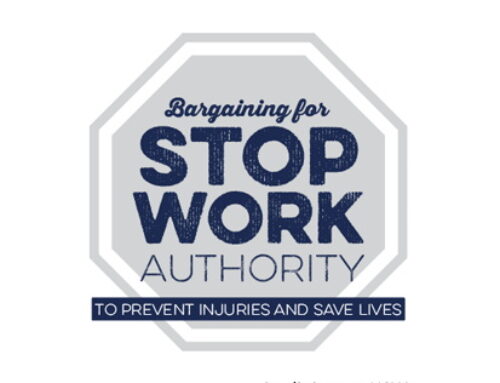For Immediate Release: August 19, 2022
Contact: Debra Coyle, 609.707.1320; [email protected]
Rejecting former President Trump’s fealty to the chemical and oil industries, the U.S. Environmental Protection Agency (EPA) today proposed revisions to its Risk Management Program (RMP) rule to further protect vulnerable communities and workers from releases of highly hazardous chemicals, including those living near facilities with high incident rates, such as chemical plants. The proposed regulation, the “Safer Communities by Chemical Accident Prevention Rule,” would strengthen the existing program rules and include new safeguards for approximately 90 industrial facilities in New Jersey.
The Agency’s RMP rule protects public health and the environment by requiring industrial facilities with high incident rates to prevent accidental air releases of dangerous chemicals that could cause deaths, injuries, property damage, environmental damage, or require evacuations in surrounding communities.
Debra Coyle, Executive Director, NJ Work Environment Council Statement on EPA’s proposed RMP Rule
WEC commends the U.S. EPA for issuing this proposed rule. It’s a step in the right direction to prevent chemical accidents in New Jersey and the nation.
In particular, WEC is pleased to see new provisions such as requiring facility management to assess and prepare for severe weather and climate change. Approximately one-third of facilities across the nation are sited in areas known to be prone to climate risk due to flooding. Because data is not available on all natural disasters risks, this likely underestimates the danger.
The current RMP rule does not explicitly require high-risk facilities to address natural hazards or climate change as part of their risk management program as noted in a 2022 Government Accountability Office report. Many high-risk facilities are located directly in the path of hurricanes and other extreme weather events, which will intensify with climate change.
Another positive new provision is advancing greater worker and union participation in facility accident prevention programs.
Other new provisions include requiring:
- More transparency for fence line communities and notice when there is an RMP incident.
- Analysis of whether facilities can operate more safely.
- Root cause analysis in chemical incident investigations.
- Enhancing facility planning and preparedness efforts.
Chemical releases, fires, and explosions are shockingly common in the United States. The Coalition to Prevent Chemical Disasters, which WEC is a member of, maintains a running count of chemical releases, fires and explosions that endanger and harm workers and communities in the US. Since April 2020 there have been more than 600. In just ten years, there have been over 1,500 reported chemical releases or explosions at facilities regulated under the RMP rule, causing 17,000 reported injuries and 59 reported deaths.
Currently, the EPA regulates approximately 12,000 RMP facilities throughout the country such as agricultural supply distributors, water and wastewater treatment facilities, chemical manufacturers and distributors, food and beverage manufacturers, chemical warehouses, oil refineries, and other chemical facilities.
Link to EPA press release.
The New Jersey Work Environment Council (WEC) is an alliance of 70 labor, community, and environmental organizations working together for safe, secure jobs, and a healthy, sustainable environment. For more information, please visit NJWEC.org
